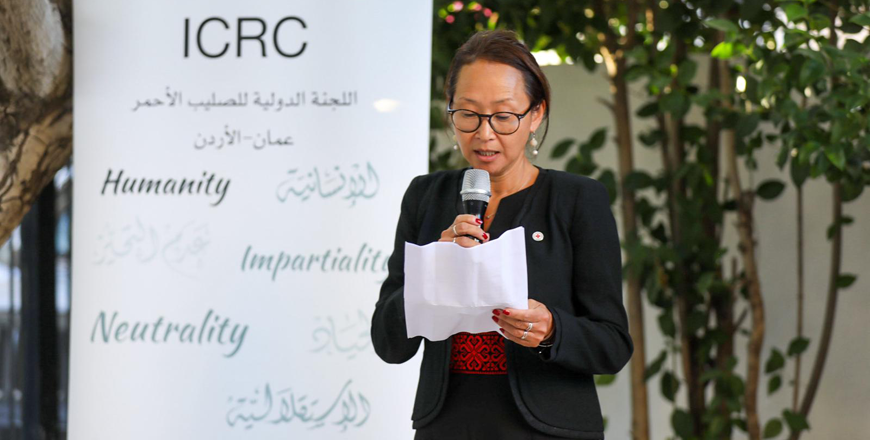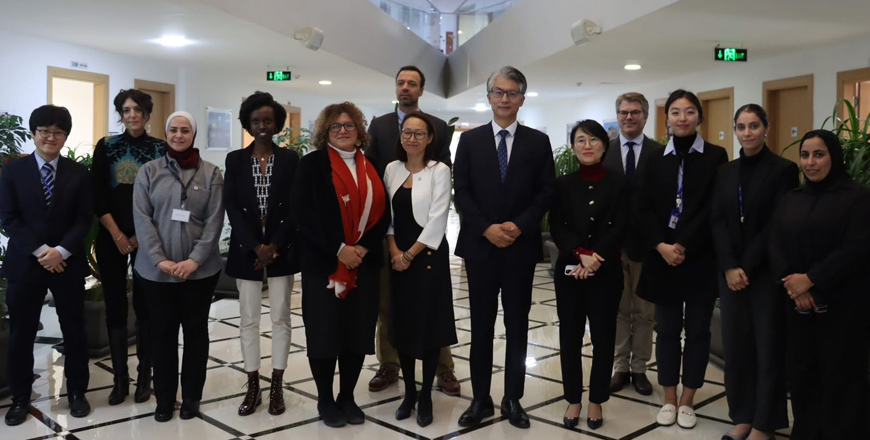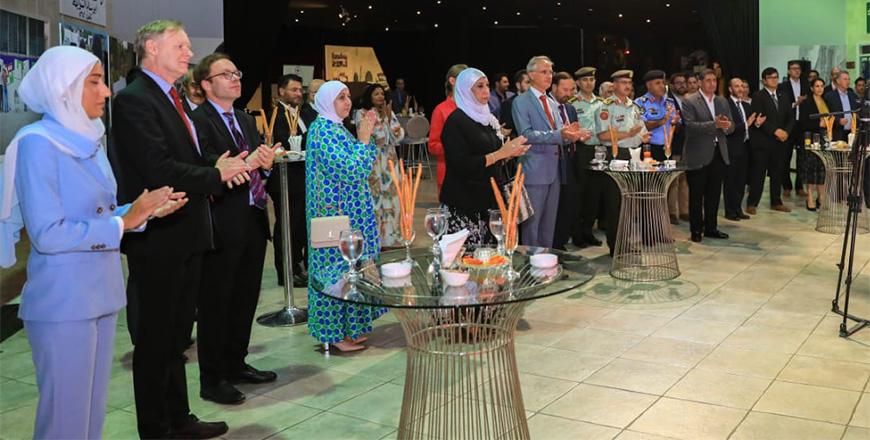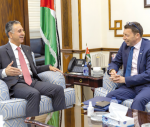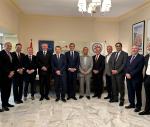You are here
ICRC’s ongoing efforts to address Syria’s missing persons crisis
By Sophie Constantin - Feb 24,2025 - Last updated at Feb 24,2025
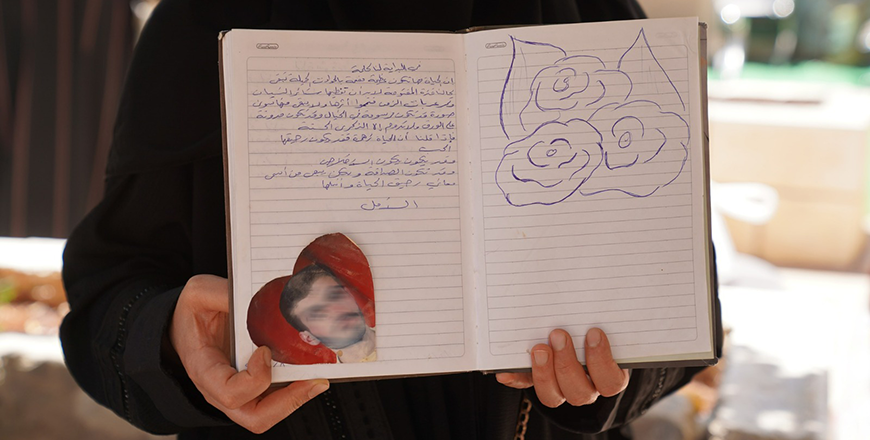
Anna Alberich, ICRC’s Protection of Family Links Delegate says that the scale of the challenge of helping to reconnect Syrian families with their missing loved ones is hard to describe (Photo by Farah Ramadan/ICRC)
AMMAN — Over 13 years of conflict in Syria, the International Committee of the Red Cross (ICRC) has taken on the responsibility of addressing the growing crisis of missing persons. Working alongside the Red Cross and Red Crescent societies, the ICRC is committed not only to providing answers but also to fostering the crucial process of reconciliation for families torn apart by uncertainty.
Since the war began, the ICRC has registered nearly 35,000 cases of people who have gone missing in Syria. However, according to the ICRC, this number is widely believed to represent just a fraction of the true scale, as many families have yet to report their missing loved ones.
These disappearances have left families trapped in a state of anguish, living for with years, sometimes decades, without answers.
“The scale of the challenge of working to help reconnect Syrian families with their missing loved ones is hard to describe,” Anna Alberich, ICRC’s Protection of Family Links Delegate told The Jordan Times. “Many of those families are still in Syria, but others have sought refuge in Lebanon, Jordan, and beyond.”
For the ICRC, the issue of the missing is far more than a logistical or legal one; it is a question of emotional survival. Along with the work of tracing and documenting disappearances, the organisation provides mental health support to help families cope with the long wait for answers.
“The ICRC has substantial expertise and practical knowledge from helping to identify people who have gone missing due to armed conflict. Still, over the past years we have been constantly refining how we document these cases," Alberich said.
"It is not just a matter of technical tools, but also how we engage with the families of missing people, actively listening, and helping the families provide information that might be relevant for the search, with empathy,” she added.
The organisation’s commitment goes beyond merely reuniting families; it seeks to address a fundamental need for closure, which plays a significant role in the broader quest for peace in Syria.
The ICRC acknowledges that the search for the missing is a long, difficult process requiring the cooperation of multiple actors, including local authorities, civil society, and international organisation.
The struggle for documentation of the missing
As detention centres in Syria are opened and detainees are released, the ICRC is raising concerns over the potential loss of vital documentation. Records such as arrest logs and detainee lists are often destroyed or lost, complicating the already difficult search for missing persons.
The ICRC is also calling for the protection of potential grave sites, stressing the need for careful handling and urging authorities to avoid premature exhumations that could compromise the quality of forensic evidence.
“The sole goal of the ICRC is to provide answers to those desperate for information about their missing relatives,” Alberich explained. “Gathering and maintaining accurate information is vital. Even something as simple as where someone was last seen or what they were wearing can later be crucial.”
The complexity of cross-border tracing further complicate the search for the missing. While a person may have disappeared in Syria, their family could be living in Lebanon or Jordan. This is where the ICRC’s Family Links Networks, a global system connecting all Red Cross and Red Crescent societies, becomes essential.
Families are encouraged to reach out to the nearest ICRC office or National Red Cross or Red Crescent Society to begin the process of registering a case. Once a case is recorded and the family consents, the information is securely shared with the ICRC teams in the country where the person was last seen.
“The next steps depend on the circumstances,” Alberich said.
“If the person was detained, their name may be added to lists of individuals visited by the ICRC. If they were in a community or hospital, our teams make inquiries in those locations. In some cases, the search may require forensic collaboration if there is a possibility the person has passed away and their remains have not been identified,” she added.
This process is often slow and uncertain, and the ICRC underscores the importance of having up-to-date contact information to ensure the search can continue as efficiently as possible.
Supporting families in a complex legal landscape
The missing person crisis often comes with significant legal and administrative challenges for families, especially when they are unable to obtain official recognition or documentation of their loved one’s disappearance. This lack of legal recognition can complicate issues such as property ownership, inheritance, and even the ability to obtain identification for children.
While the ICRC does not provide legal services, Alberich explained that they advocate for the creation of legal frameworks to address the rights of missing persons and their families. “The families have legal, socioeconomic, and psychosocial needs, which we try to address through the resources we have available,” she said.
“We assist in navigating these complexities by collaborating with other organisations that provide legal support and pushing for legal statuses that can help alleviate these burdens,” Alberich added.
As the ICRC continues its work to provide answers and closure, it urges any family members of the missing to reach out. Alberich affirmed that the ICRC remains committed to ensuring that no case is ever closed without a definitive answer, no matter how many years may pass.
“We have been receiving many calls from the hotline that was put in place in Lebanon, Syria, and Jordan, and after the recent events in Syria, we published our hotline number on social media, which led to a significant increase in calls," Alberich said.
"For example, in Jordan, from December until today, the number of calls has risen by approximately 70 per cent compared to the previous period,” she said.
Families seeking information about their missing loved ones can contact the ICRC through various hotlines in Syria through 093 603 36 28, Lebanon: 727 727, Jordan: 659 019 99, Iraq: 800 222 22, and Egypt (Red Crescent Society): 011 445 560 02.
Related Articles
AMMAN — The International Committee of the Red Cross (ICRC) marked the International Day of the Disappeared, held each year on August 30th,
AMMAN — The International Committee of the Red Cross (ICRC) and the Korea International Cooperation Agency (KOICA) in Jordan have launched t
AMMAN — To express solidarity with the families of missing persons and to mark the International Day of the Victims of Enforced Disappearanc


